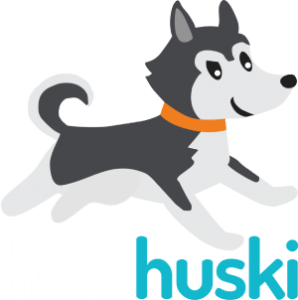 Promote Your Website To Get Found
Promote Your Website To Get Found
Websites are vital for businesses these days. So much is done online now that if you don’t have a website, you might as well be running a side-of-the-road produce stall in the back-end of town. Nobody is going to know you exist. In the wake of Covid-19, your business’s online operations are more important than ever. If you don’t have a website yet, you definitely need one. But what good is having a website if no one knows about it? You’ve got to promote it!
Inexpensive Promotion
There are a lot of ways to promote your website. Some of them are cheap (and often worthless) while others are expensive (and sometimes equally worthless). So many of the old approaches to promotion aren’t effective anymore. You still have to promote yourself somehow, though. What to do? Well, here are 5 inexpensive ways to promote your website to get you going.
1. Social Media
The tools that social media opens you up to, including reviews, makes for powerful promotion. You know what the best part about social media is? Almost all of it is free. It costs nothing to register with Facebook, Twitter, Instagram, or most other social media platforms. At the same time, it gives you a place to make business announcements to the public. You can also use it as a means to communicate with customers and establish rapport with them. While it takes time to build a social media following,once you get it built, it’s really effective. You can’t count on going viral – that’s always up to the whim of the Almighty Algorithm – but you can use it to build up an audience. If your audience likes the material you put out, they’ll share it around, expanding the number of people aware of and interested in your website. It’s a slow process at first, but once you grab people’s attention, you build a strong following.
2. Facebook Groups
Next up, you know it, you love it (or hate it) and you can’t seem to get rid of it: Facebook. While their algorithm is cumbersome and the regulations on businesses operating on it are getting increasingly confusing, Facebook does have one last redeeming quality you might like to explore. That’s Facebook Groups. Facebook Groups are community-focused open forums on Facebook built around a common interest. Whereas a business page emphasizes your posts, a group emphasizes more discussion. Any user can create a group, or attempt to join one. Some groups are public, others are private. Facebook groups can be a great way to promote yourself by involving yourself in discussions relevant to your business with people interested in those subjects. Don’t attempt to directly advertise yourself through a Facebook Group, though. The groups will probably not be happy if you start spamming them with advertisements. Instead, engage with the audience authentically, share insights, and genuinely be a part of the community. If you contribute value to the group, other members will be more apt to check your website out.
3. Blogging
When it comes to being found out, you need to get Google’s algorithm to take an interest in your page so it starts displaying results. The first step to that is submitting your site-map, which is a major part of the SEO process. Once you get the site-map submitted, though, you need to start providing content that Google will find relevant to people’s searches. Blogs will help you do that. Every blog you post will be new content for Google to crawl, letting them know that your business is active. If you focus your blog posts around subjects relevant to your business and keywords that your potential customers are looking for, your blog posts become more likely to end up on Google’s front page search results.
Your blog articles should be informative rather than focused on sales or marketing. Updates on special deals and other features of your business are good now and then, especially for keeping people up to date on what you’re doing, but they shouldn’t make up the majority of your posts. Instead, focus on topics and news relevant to your business that you can give an informed opinion on. How-to’s and tips are great attention getters. If the content is good, it can be shared around by your customers without you needing to do anything more. Don’t forget to remind your social media followers of your blog posts, so they can help you share the message. A mediocre post won’t necessarily damage your business, but a good blog article can drastically elevate yourself online. Even simply reblogging important news articles relevant to your business keeps Google paying attention to you.
4. Guest Blogs
Links are a strong factor in determining how relevant Google thinks your content is to the search results. The more people who link to it from their website, the better it ranks. You have to be careful with that, though. Google is always updating its algorithm to try and weed out sketchy link building techniques. That’s why you don’t see many websites with pages devoted to sharing links anymore – it hurts businesses more than it helps. There are a lot of shady SEO techniques that cheap companies (especially overseas groups) try to use to manipulate search results. They may work for a little while, but Google eventually figures them out and puts a stop to them. It’s always better to rely on links from trusted sources who link back to you because they respect your content.
According to marketing guru, Neil Patel, guest blogging is one of the most effective ways to get highly favorable backlinks. If you can find someone who’s not a direct competitor – such as a similar business, but in an area you don’t have any stores, or a business related, but not directly competing with you – who also has a blog, you can agree to do guest blogs for each other. The guest blogs link back to each other, so each page gets a significant boost from the backlinks. Keep your eyes open for opportunities to do this. If you want to know more on how you can find and arrange guest blogging opportunities, Neil Patel has a guide.
5. Join Business Networks
Business networks are a good way to get some promotion from other businesses. Joining a business network, or your local Chamber of Commerce, will get you in on the inside scoop for news and updates going on in your community. Knowing what’s going on around you can help you get ahead when it comes to what local events are getting people’s interest. It will also help you meet like-minded businesses who might be willing to help promote you, if you’re willing to do the same for them. Make sure you have some business cards ready to share around and don’t pass up on any business cards others share with you. Every connection is an opportunity.

Promote Yourself
Getting your website found can be difficult and it takes time. If you want to improve your chances of being discovered, you’ve got to promote your website. There are many ways to do so, some more effective than others. Social media platforms, social media groups, blogging, and business networking are some inexpensive methods to help you get your foot in the door. They provide a good foundation for your promotional strategy. If you take these steps, you’ll find they make your site way more attractive to new visitors and customers. The organic traffic these steps bring once your site takes off is far more effective than any expensive marketing campaign will be at first. It builds good word-of-mouth marketing, which is always the most effective. Combined with a strong social media presence and good reviews, you can get ahead of your competition without needing to break the bank on your marketing budget!

 Promote Your Website To Get Found
Promote Your Website To Get Found